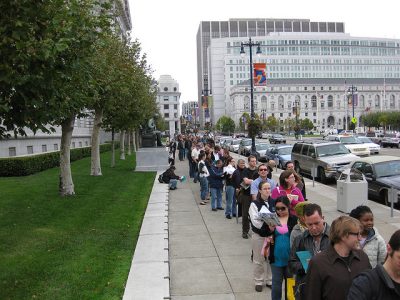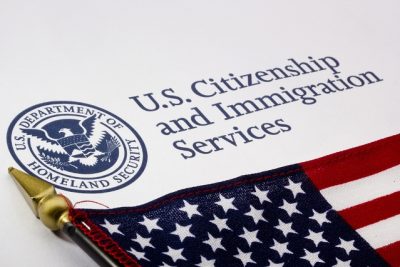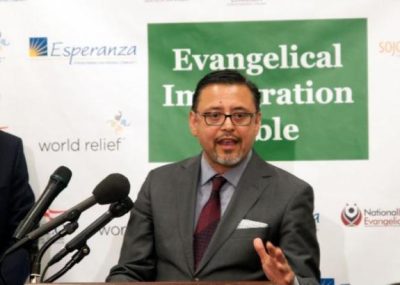Family-Based Immigration
Through family-based immigration, U.S. citizens and lawful permanent residents can sponsor relatives for immigration. We aim to be a leading force in transforming family-based immigration policy in order to maintain family unity, foster cohesive communities, and strengthen America’s economic growth. Read more about our approach below.

Talking Turkey on Immigration 2012
After cheers for football, some of the loudest shouting at many Thanksgiving feasts will come from political discussions gone awry. You might think that you can take it easy on the immigration issue this year, as the political chatter is now heavily in favor of immigration reform. But the blessings of conservative politicians and pundits won’t necessarily translate into harmony and world peace at the dinner table, especially if your relative is part of the 35% of voters that don’t support legalization for unauthorized immigrants. Read More

A Long Journey to the Voting Booth
For some people, this year’s journey to the voting booth started years ago, in El Salvador or China or Cameroon, when it became clear that they had to leave their country and start over in America. For those people, (whom U.S. Citizenship and Immigration Services calls “Americans by choice,”) the journey to the polls has involved hardship, struggle, hundreds of hours learning English and civics, and studying for the naturalization test. They bring not only their vote to the polls, but a reminder to all of us that our precious democracy can only succeed when we believe in this country enough to take the time to vote. Read More

California Passes Groundbreaking Legislation to Prevent “Shattered Families”
By Yali Lincroft, Policy Consultant, First Focus Campaign for Children. Late last month, California Governor Jerry Brown signed into law two bills – AB2015 and SB1064 - which address the nightmare scenarios that can befall parents and their children caught up in the immigration system. The recent report Shattered Families: The Perilous Intersection of Immigrant Enforcement and the Child Welfare System describes the issue in detail including the “extent to which children in foster care are prevented from uniting with their detained or deported parents and the failures of the child welfare system to adequately work to reunify these families.” Read More

Naturalized Citizens Have the Power to Swing Elections
There is no doubt that immigrants are a force to be reckoned with in this year’s presidential race. After all, the Obama administration unveiled its Deferred Action for Childhood Arrivals (DACA) program in June, just a couple of months before the official start of the campaign. And Republican presidential nominee Mitt Romney has said that, if elected, he will not deport DACA beneficiaries (although he says he will discontinue the program). In other words, both candidates are going out of their way to woo immigrant voters—that is, naturalized U.S. citizens who are eligible to vote—as well as those second and third generation Americans for whom immigration is still a highly personal issue. This is smart politics. Given that the presidential election could be decided by the most razor-thin of margins, the ballots cast by naturalized citizens could prove decisive, especially in the handful of swing states upon which the election will probably hinge. Read More

No Paid Sick Days for Immigrant Caregivers Risky to Workers, U.S. Economy
By Elisa Batista, Women Immigrants Fellow, New America Media. In 91-year-old Elda Frank’s apartment is a scenario that plays out every moment of every day. An immigrant caregiver with no paid sick days scrambles for backup when she becomes ill on the job. In caregiver Paula Osorio’s case, she called Frank’s son, Bruce, and offered to send her partner, Roberto, in her place. Read More

California DREAMers Exhibit High Levels of Civic Participation, Yet Face Significant Hardships
By Caitlin Patler, Ph.D. Candidate in Sociology, UCLA There are roughly 5 million undocumented children and young adults currently living in the U.S. today, 24% (or 1.1 million) of whom live in California. As in other states, California’s undocumented youth face a unique and challenging paradox. On one hand, they work hard, excel academically, participate in their communities and have high educational and career aspirations in the only country they’ve ever known. On the other hand, their immigration status severely limits their opportunities, aspirations and ability to contribute fully to U.S. society. A new research brief, co-authored by Veronica Terriquez and this author, highlights the experiences of undocumented youth in California—many of whom disproportionally experience economic and personal hardships. Read More

Even a Fifth Grader Realizes the Power of the American Dream
Shortly after President Obama announced that DHS will halt the deportations of eligible undocumented youth, a Chicago-area fifth grader delivered a speech of his own. Over the weekend, Alexander Tymouch was honored as the National 5th Grade Creative Writing Contest winner at the American Immigration Council’s Annual Benefit Dinner where he read his essay, “America, the Magical Land,” alongside Grammy-nominated musicians at the Gaylord Opryland Hotel in Nashville. Read More

Even Evangelicals Agree: Congress Needs to Take Action on Immigration
DREAM Act students, immigration advocates and community leaders have turned up the heat on Congress and the Obama administrative in recent weeks to do something, anything, about our nation’s immigration problems. Yesterday, Evangelical leaders—including the National Association of Evangelicals, and Focus on the Family—joined that effort, denouncing recent “self-deportation policies” and calling on leaders to break the gridlock on immigration. Read More

Advocates Call on Obama Administration to Protect Immigrant Families, Not Deport Them
Nearly a year ago, ICE Director John Morton issued a memo on prosecutorial discretion which led to the review of 300,000 immigration cases currently in removal proceedings. Advocates initially applauded this announcement, hoping that the administration would move quickly to close low-level, non-criminal immigration cases. But today, disappointed by the program’s low closure rate, advocates and community leaders called on the Obama administration to make good on its promise of using of prosecutorial discretion to protect DREAMers and immigrant families from deportation. Read More

Standardizing Guidelines Would Improve USCIS’s Proposed Family Unity Waiver Rule
Earlier this year, USCIS proposed a new waiver rule that would allow some unauthorized immigrants (mostly direct family members of U.S. citizens) who are applying for a green card to apply for a waiver to the 3 and 10 year bar from within the United States, minimizing the amount of time they would have to be away from their families. While many welcome this proposed rule change, there are ways in which USCIS could streamline this process. In addition to previously suggested improvements, USCIS could provide training and guidelines on the extreme hardship standard to ensure that the standard is applied consistently. The “comment period,” which is open to the public and can be used to suggest improvements to the rule, end this Friday, June 1. Read More
Make a contribution
Make a direct impact on the lives of immigrants.
